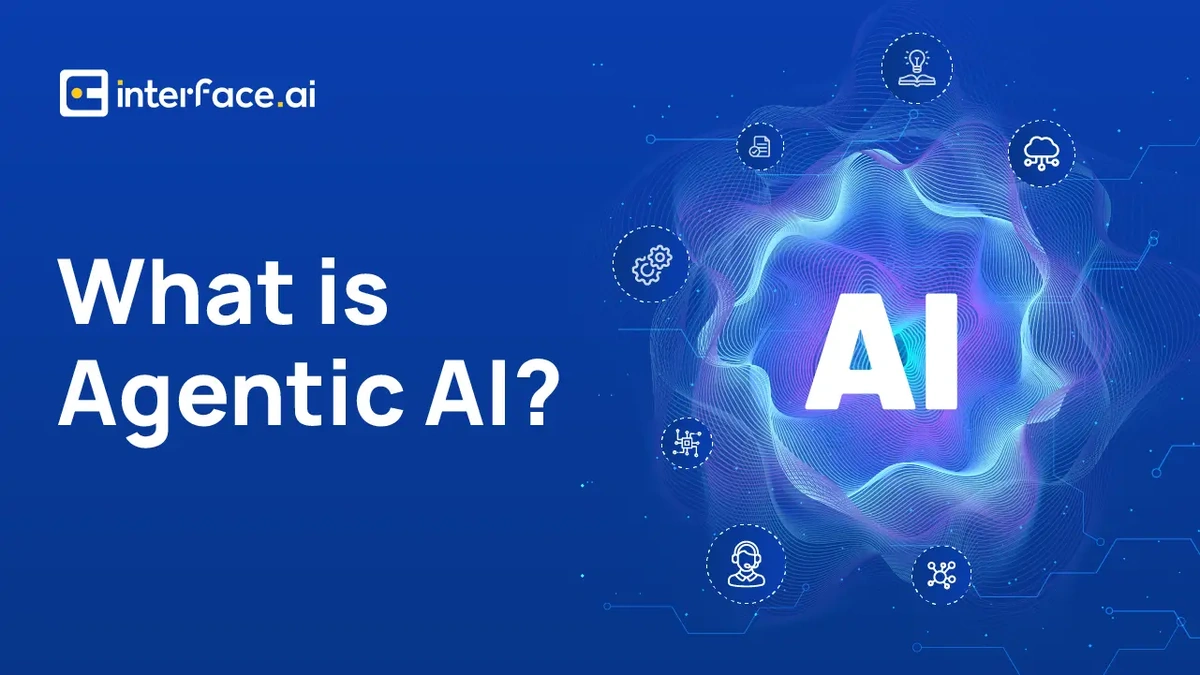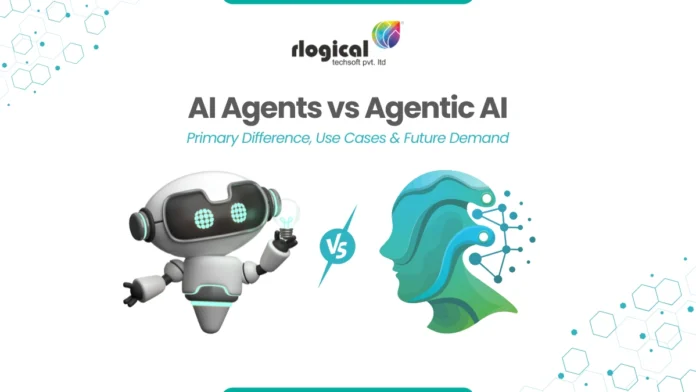Hey there, tech enthusiasts! Ever feel like you’re drowning in a sea of workflows? What if I told you there’s a life raft on the horizon – an Agentic AI , to be precise? We’re not just talking about souped-up chatbots anymore; we’re diving into the world where AI collaborates with us autonomously. Intriguing, right? Let’s unpack this.
The “Why” Behind the Agentic Leap

Here’s the thing: traditional AI, as impressive as it is, often operates within rigid frameworks. You feed it data, it spits out a response. But Agentic AI ? It’s a different beast altogether. It takes initiative, learns from its interactions, and adapts its strategies. Think of it as going from a diligent office assistant who follows instructions to the letter to a strategic partner who anticipates your needs. But why is this shift happening now? Because the sheer volume of data and complexity of tasks demands more than just automation; it requires intelligent collaboration.
What fascinates me is the underlying shift in how we perceive AI. It’s no longer just a tool; it’s becoming a teammate. And this has profound implications for everything from business strategy to creative problem-solving. The old model of humans telling machines exactly what to do is evolving into a collaborative dance, where humans set the vision and AI helps execute it with unprecedented efficiency and creativity.
How Agentic AI Changes the Game
So, how exactly does Agentic AI change the game? Let’s be honest, it’s not magic. It’s a confluence of several key technologies: advanced natural language processing (NLP), machine learning (ML), and reinforcement learning (RL). NLP allows AI to understand and respond to human language with nuance. ML enables it to learn from data and improve its performance over time. And RL allows it to make decisions based on trial and error, much like humans do.
But the real magic happens when these technologies combine to create an AI that can:
- Plan and execute complex tasks: Instead of just responding to individual prompts, Agentic AI can break down complex goals into smaller, manageable steps.
- Learn and adapt: It can analyze its performance, identify areas for improvement, and adjust its strategies accordingly.
- Collaborate effectively: It can communicate with humans in a natural and intuitive way, sharing insights and soliciting feedback.
I initially thought this was straightforward, but then I realized the implications are far-reaching. For instance, in customer service, it means moving beyond scripted responses to personalized, empathetic interactions. In healthcare, it could mean AI that helps doctors diagnose diseases more accurately and develop personalized treatment plans. According to the latest research on Oracle (oracle.com) , Agentic AI is poised to revolutionize industries and the way we work.
The Emotional Angle | Trusting the Machine
Let’s be honest: the idea of handing over significant control to an AI can be a bit unsettling. That moment of hesitation, the question mark in our mind. Is it trustworthy? Can it really understand the nuances of human intention? These are valid concerns. But here’s the thing: trust isn’t just given; it’s earned. And as Agentic AI demonstrates its capabilities through consistent, reliable performance, that trust will naturally grow.
However, it’s crucial to remember that AI is still a tool, and like any tool, it can be misused. Ethical considerations are paramount. We need to ensure that Agentic AI is developed and deployed responsibly, with safeguards in place to prevent bias, discrimination, and other unintended consequences. As per the guidelines mentioned in the Electronic Frontier Foundation (eff.org) , transparency and accountability are the cornerstones of responsible AI development.
Navigating the Future with AI
So, what does all this mean for you? Whether you’re a business leader, a tech enthusiast, or simply someone curious about the future, the rise of Agentic AI is something you need to pay attention to. It’s not just a technological trend; it’s a fundamental shift in how we interact with machines.
A common mistake I see people make is dismissing Agentic AI as hype. It’s easy to get caught up in the skepticism, especially when the technology is still evolving. But the potential benefits are too significant to ignore. By embracing Agentic AI, we can unlock new levels of productivity, creativity, and innovation.
And remember, this isn’t about replacing humans; it’s about augmenting our abilities. It’s about freeing us from mundane tasks so we can focus on what we do best: thinking creatively, solving complex problems, and building meaningful relationships. Let me rephrase that for clarity: Agentic AI isn’t here to steal our jobs; it’s here to help us do our jobs better. Internal Link
FAQ About Agentic AI
What exactly is Agentic AI?
It’s AI that can independently plan, execute, and learn to achieve goals, unlike traditional AI which primarily reacts to instructions.
How is it different from regular AI?
Regular AI often requires step-by-step guidance. Agentic AI can break down complex tasks and execute them autonomously.
Is Agentic AI safe and ethical?
Development of Agentic AI involves careful consideration of ethical implications to prevent misuse.
Will Agentic AI replace human jobs?
The focus is on augmenting human capabilities, not replacing them.
In conclusion, the shift towards Agentic AI is more than just a technological upgrade; it represents a fundamental change in how we approach problem-solving and innovation. By embracing this evolution, we can unlock new possibilities and create a future where humans and AI work together seamlessly. Internal Link



